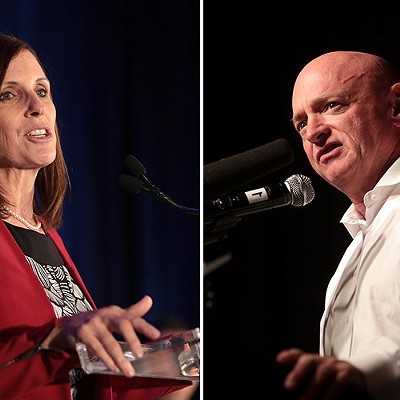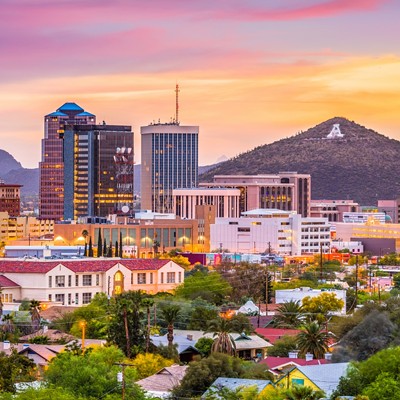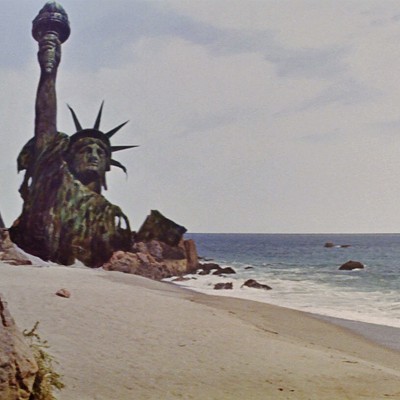"Why care about the Earth when the droughts, floods, famine and pestilence brought by ecological collapse are signs of the apocalypse foretold in the Bible?" Moyers said. "Why care about global climate change when you and yours will be rescued in the rapture? And why care about converting from oil to solar when the same God who performed the miracle of the loaves and fishes can whip up a few billion barrels of light crude with a word?"
The "delusional is no longer marginal," said the intrepid journalist, noting that nearly "half the U.S. Congress before the recent election--231 legislators in total; more since the election--are backed by the religious right. Forty-five senators and 186 members of the 108th Congress earned 80 to 100 percent approval ratings from the three most influential Christian right advocacy groups. They include Senate Majority Leader Bill Frist, Assistant Majority Leader Mitch McConnell, Conference Chair Rick Santorum of Pennsylvania, Policy Chair Jon Kyl of Arizona, House Speaker Dennis Hastert and Majority Whip Roy Blunt."
Whoa, back up a minute! Is Moyers talking about our Jon Kyl? Arizona's other senator?
Curiosity piqued, the Tucson Weekly began perusing Sen. Kyl's record. What emerged was indeed an eerie confluence of religious-right patronage and environmental oafishness. From supporting a constitutional ban on gay marriage to backing the federal judgeship of Arkansas Right to Life's former president, Sen. Kyl has firmly planted his flag with the religious conservatives. And they've thanked him famously, with contributions and sterling score cards; Kyl gets 100 percent ratings from the National Right to Life Committee, the Christian Coalition and the Family Research Council.
But the League of Conservation Voters awards Arizona's junior senator a resounding zero. In recent sessions, Kyl has supported drilling in the Arctic National Wildlife Refuge, backed anti-environmental judicial nominees, voted against Superfund toxic waste clean-ups and held environmental funds hostage.
"The senator overall has a very poor record on environmental protection," says Betsy Loyless, LCV vice president for policy. "He consistently votes against clean water, clean air, protecting our forests."
For the sake of comparison, let's consider Sen. John McCain. Living up to his maverick reputation, McCain scored only a 67 with both the Family Research Council and the LCV. "I think Sen. Kyl should look at others in his own party--such as McCain--who work toward compromise and consensus," says Loyless.
By contrast, Sen. Kyl has emerged as an apocalyptic cowboy. Take the "Houses of Worship" bill. Spearheaded by Rep. Walter Jones (R-NC), the measure would allow full-blown political activities in churches, without IRS stricture. In other words, churches could in effect become political action committees without losing their tax-exempt status.
On the other hand, Kyl voted to close further debate--and push for confirmation--of William Meyers, nominated to the Ninth Circuit Court of Appeals. The Ninth Circuit has rendered crucial environmental decisions in the West, including Arizona. But while a solicitor for the Interior Department, Meyers helped open land for mining, attacked environmental regulations and denounced the California Desert Protection Act as "legislative hubris."
Kyl spokesman Scot Montrey says the LCU rating is extremely partisan--favoring Democrats--and that Kyl's record has benefitted Arizonans. "He recently signed a huge water settlement, and worked to expand the Petrified Forest National Park," says Montrey.
Jim Backlin, the Christian Coalition's vice president for legislative affairs, scoffs at the thought that Kyl's religious-right leanings drive his environmental votes. "We think of ourselves as being in the mode of Teddy Roosevelt," he says. While Roosevelt was an enthusiastic moralist, "he also wanted to preserve the land, and a lot of our people do, too."
Still, the senator is "absolutely" representative of politicians the Christian Coalition courts, says Backlin. "He's among the top 10 senators supporting the Christian Coalition's position on important issues."
Loyless of the LCV also stops short of blaming Kyl's religious backers for his dismal environmental record. "Frankly, I don't know what his rationale is," she says. "It could be more directed to the amount of money he takes" from special interest groups.
According to the watchdog Web site opensecrets.org, during the 1999-2004 election cycle, Sen. Kyl received plenty of industry support that might affect his environmental positions, including $73,750 from electric utilities and $65,299 from the oil and gas industry. Not surprisingly, Kyl also ranked among the top 20 senators in fund-raising from anti-abortion groups during the past year.
Others see a direct connection between Armageddon junkies and Kyl's environmental votes. "There is a viewpoint that it's not necessary to protect the environment, because the end of the world is coming soon," says Robert Boston, spokesman for Americans for Separation of Church and State. "They tend to be the same people who are skeptical of global warming, and tend to view environmentalists as extremists."
And, says Boston, Sen. Kyl "is in lockstep with the religious right, right down the line."
Like Bill Moyers, the LCV'S Betsy Loyless says there's worry and uncertainly among activists. "Within the environmental community, there isn't a clear sense of how large an element (within the religious right) believes there is no need to take care of the environment because (the end of the world) is imminent. But it's certainly something we're discussing."












